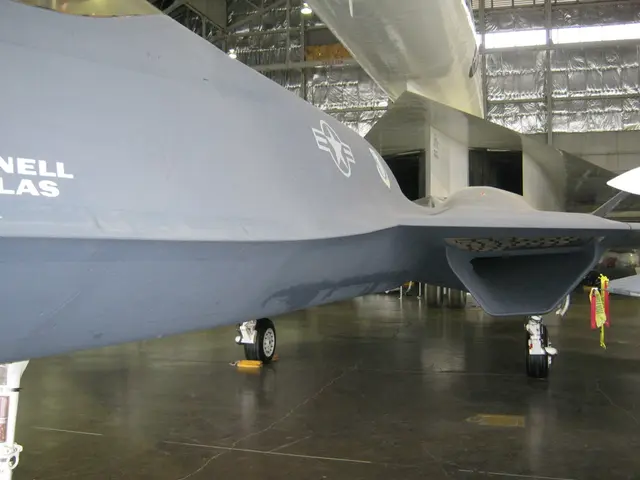UK and Germany Join Forces to Develop Powerful Long-Range Strike Missile
United Kingdom and Germany deliberate over joint development of long-range weaponry. - United Kingdom and Germany aim to collaborate on building a distant-reaching weapon jointly.
In a significant move, the UK and Germany have announced plans to collaborate in developing a cutting-edge, long-range precision strike missile. This joint venture, according to a German defense ministry spokesperson, aims to bridge a crucial capability gap and bring down costs, while also facilitating joint training.
The bilateral project will be seamlessly integrated into the European Long-Range Strike Approach (ELSA) initiative, initiated by France last year and backed by several European nations. The ELSA umbrella provides a platform for collective discussions on weapons development, as per the spokesperson.
During a meeting in Berlin, UK Defense Secretary John Healey and German Defense Minister Boris Pistorius discussed the project along with Ukraine support and the implementation of the Trinity House Agreement. Signed in October 2024, the agreement facilitates deeper bilateral defense cooperation across defined areas.
Shedding Light on the Long-Range Missile Project
The joint long-range weapon in development is set to outshine current missiles like the Storm Shadow/SCALP cruise missile and Germany's Taurus KEPD-350. This next-generation missile, boasting a range surpassing 2,000 km, is poised to establish a "deep precision strike" (DPS) capability. This innovation will empower both NATO and Europe with enhanced deterrence and security.
The project marks the first tangible outcome of the Trinity House Agreement and represents a substantial leap forward in European defense technology. It's positioned within the broader ELSA initiative as a means to establish Europe with an autonomous deep-strike defense capability. ELSA, supported by several nations including the UK and Sweden, seeks to achieve long-range strikes beyond 2,000 km, potentially incorporating ballistic missile systems. Clusters under ELSA enable participating nations to tailor their weapons concepts to meet diverse operational needs across Europe.
This strategic cooperation signifies growing efforts within Europe to bolster strategic independence and advanced missile technology under a collective defense framework.
The Commission, given its role in consultations on draft regulations, may be consulted on the development of long-range weapons, particularly the joint long-range precision strike missile project between the UK and Germany. Industry, finance, and aerospace sectors may be keenly interested in the advancements and potential collaborations arising from this joint venture, as it aims to bridge a capability gap and bring down costs.








